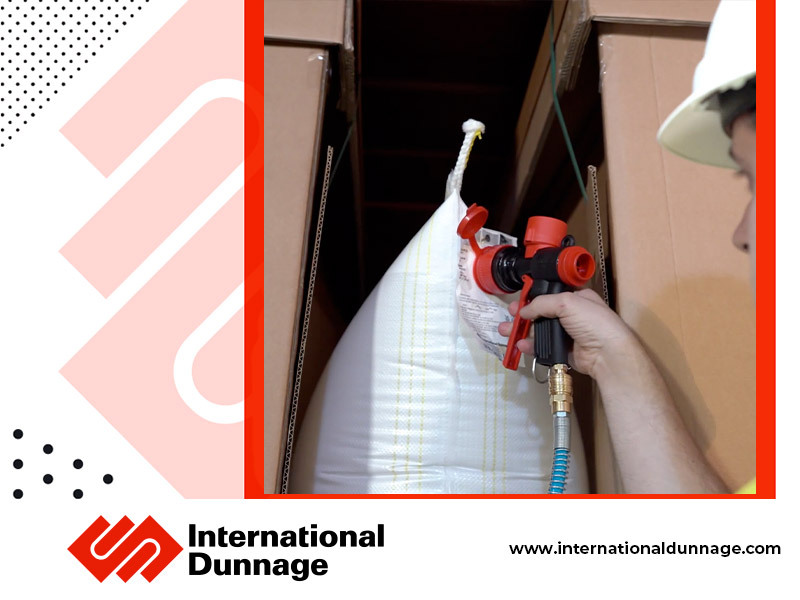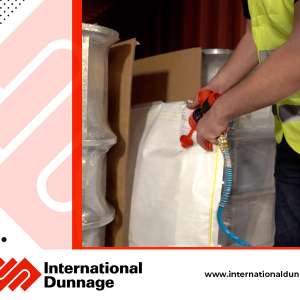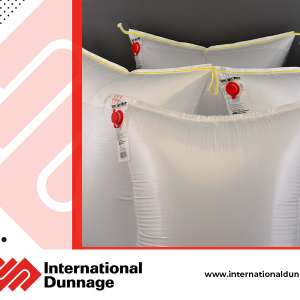In the realm of freight transportation, securing heavy loads is a matter of paramount importance. A lapse in this regard can lead to dire consequences, including damage to goods, financial losses, and even life-threatening accidents. It is within this context that Level 3-4 Dunnage Bags emerge as an indispensable tool for ensuring the stability and safety of heavy loads in rail cars.
These bags, designed with robust materials and advanced technology, serve as a cushioning barrier against the dynamic forces that are unleashed during the journey of a rail car. They fill the voids between cargo items, thereby preventing their movement and reducing the risk of damage. This introduction aims to shed light on the vital role that Level 3-4 Dunnage Bags play in the realm of rail freight transportation, underscoring their significance in maintaining the integrity of heavy loads and contributing to the overall efficiency and safety of this mode of transport.
Dunnage bags, designed to secure and stabilize cargo transported in trucks, ships, and railcars. The primary function of these bags is to prevent movement of goods while in transit, thereby minimizing potential damage. Their application has been widely recognized in various industries, from food and beverages to electronics and heavy machinery, providing an effective solution for securing shipments and ensuring they reach their destination in optimal condition.
The use of dunnage bags goes beyond mere product protection. It also contributes significantly to enhancing logistical efficiency. By filling voids and bracing loads, these bags maintain the balance of the cargo, reducing the likelihood of accidents during transportation. Furthermore, they are easy to install and remove, making them a time-saving tool in loading and unloading processes. Overall, the incorporation of dunnage bags into freight transportation systems signifies a commitment to quality, safety, and efficiency.
The Unique Features of Level 3-4 Dunnage Bags
Level 3-4 Dunnage bags offer unique features that set them apart from other types of dunnage bags. These bags are specifically designed to withstand considerable pressure, making them suitable for heavy-duty applications. They are constructed using a combination of high-quality materials, including an inner layer made of polyethylene for air retention and an outer layer composed of woven polypropylene for enhanced strength and durability.
The design of Level 3-4 Dunnage bags also incorporates a high-grade inflation valve, ensuring fast and efficient inflation and deflation. This feature not only facilitates the installation and removal process but also allows for precise adjustment of air pressure, enabling optimal load stabilization. Furthermore, these bags are available in various sizes and can be custom-made to meet specific requirements, providing a versatile solution for different cargo configurations. In essence, the unique features of Level 3-4 Dunnage bags make them a reliable choice for securing heavy loads during freight transportation.
The Application of Level 3-4 Dunnage Bags in Rail Cars
Level 3-4 Dunnage bags are frequently employed in rail cars, their unique characteristics making them an indispensable tool for securing freight. In the realm of railway transport, these bags serve the purpose of filling voids between cargo items, preventing the damaging shift and sway of goods during transit. Their robust construction allows them to endure the substantial pressures exerted by heavy loads, thus ensuring the safety and integrity of the cargo.
The application process of these bags is straightforward, contributing to their widespread use in this sector. Once inflated to the desired pressure via their high-grade inflation valve, they are strategically positioned within the cargo space. This creates a stabilizing force that effectively restrains movement, acting as a protective cushion against potential impacts. The versatility of Level 3-4 Dunnage bags, coupled with their ease of use, makes them an optimal solution for freight stabilization in rail cars.
The Benefits of Using Level 3-4 Dunnage Bags for Heavy Loads
Level 3-4 Dunnage bags provide a multitude of benefits when used for heavy loads, most notably their superior load stability and damage prevention capabilities. These bags are meticulously crafted to withstand the rigors of heavy-duty applications, ensuring that freight remains secure throughout the entirety of its journey. They act as an effective barrier against cargo shift, a common cause of damage during transit, thus significantly reducing the risk of costly freight claims.
Moreover, these dunnage bags are not only robust but also highly versatile. They can be adapted to fit a wide range of cargo configurations, making them suitable for diverse types of freight. This flexibility allows for efficient use of space within the shipping container or rail car, contributing to improved transport efficiency. Furthermore, despite their heavy-duty performance, Level 3-4 Dunnage bags are lightweight and easy to handle, adding to their practicality in the demanding environment of freight transportation.
The use of these bags not only reduces the risk of damage to goods but also contributes to the overall efficiency and safety of rail freight transportation. By mitigating financial losses and potential accidents, they prove themselves to be an indispensable tool in this realm.
Thus, it is clear that Level 3-4 Dunnage Bags are more than just a means to secure heavy loads; they are an investment in the integrity of our goods, the safety of our workers, and the success of our businesses. As we continue to strive for advancements in freight transportation, the importance of these bags remains undiminished, serving as a testament to the timeless value of innovative solutions in the face of complex challenges.
For more information about Level 3-4 Dunnage Bags please contact with International Dunnage.








